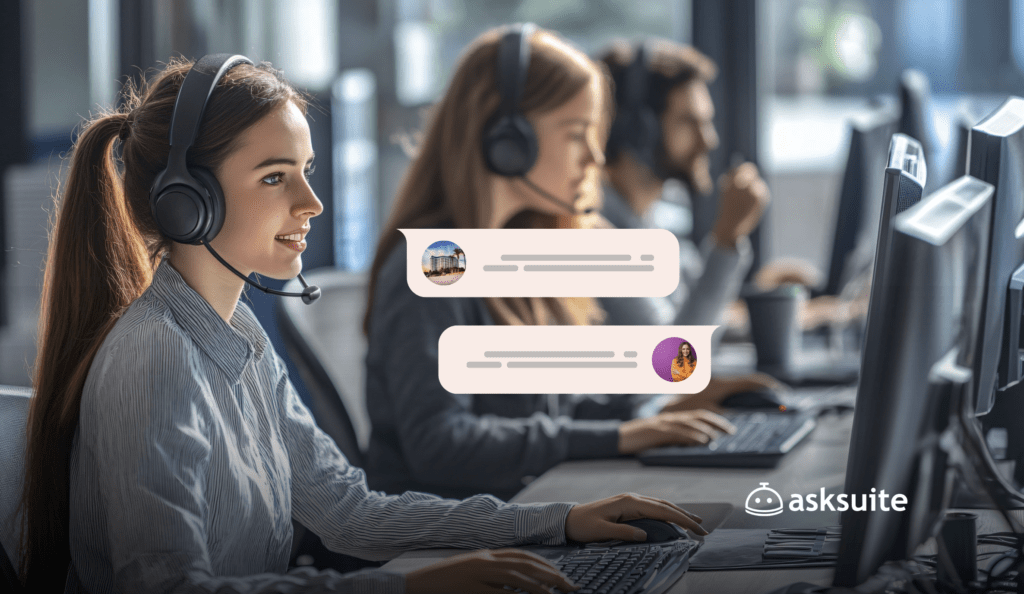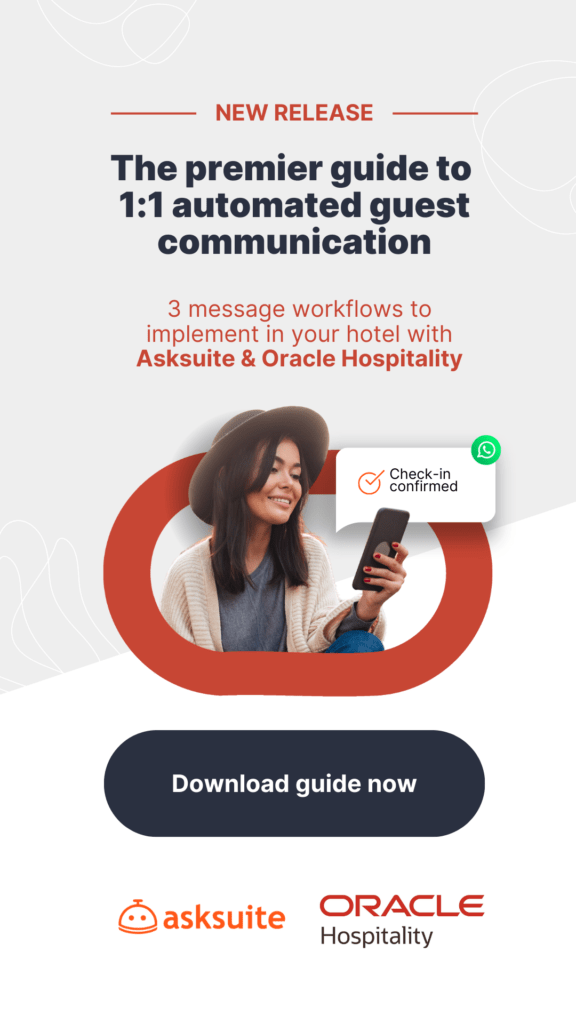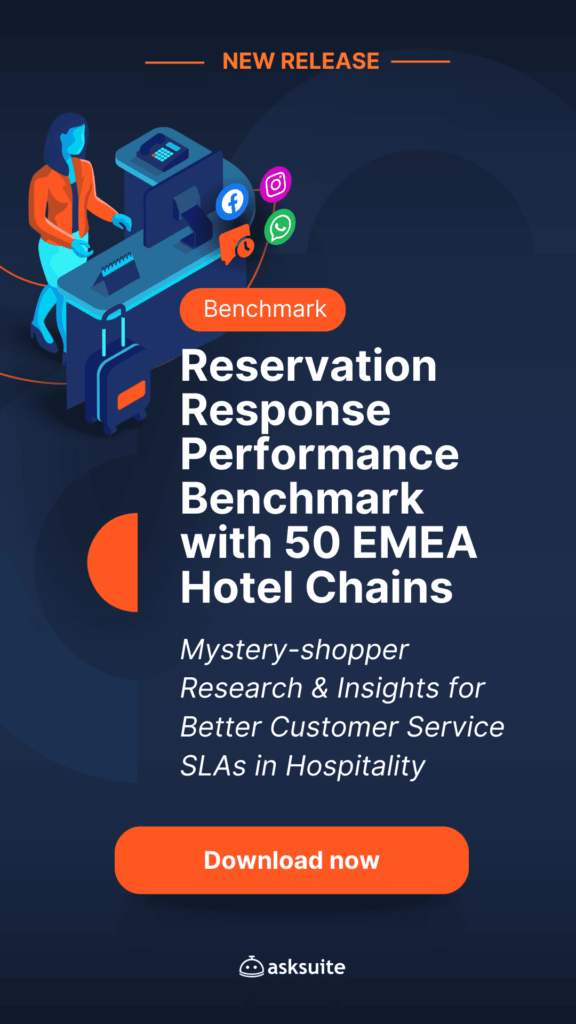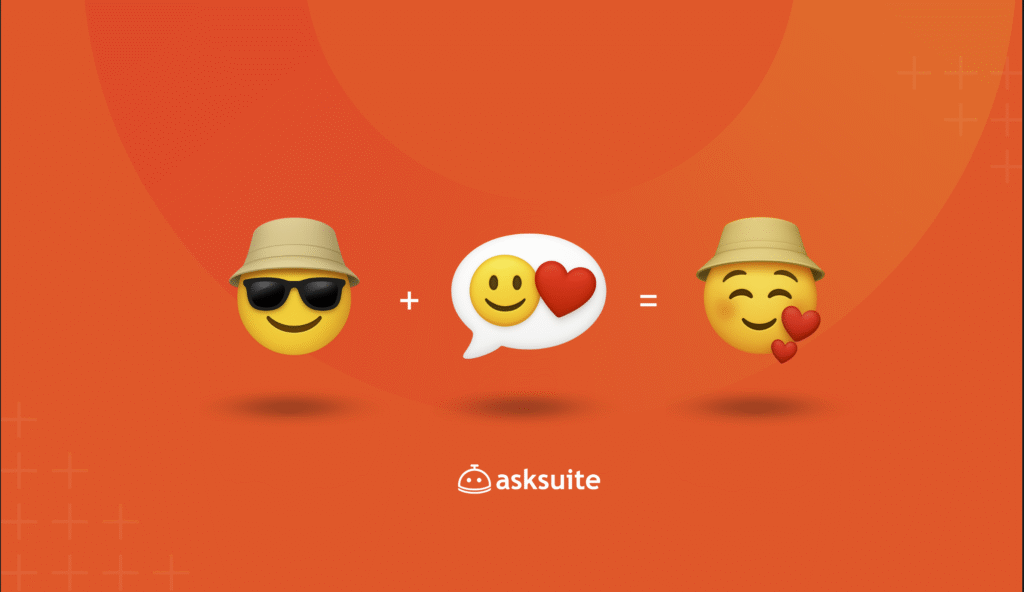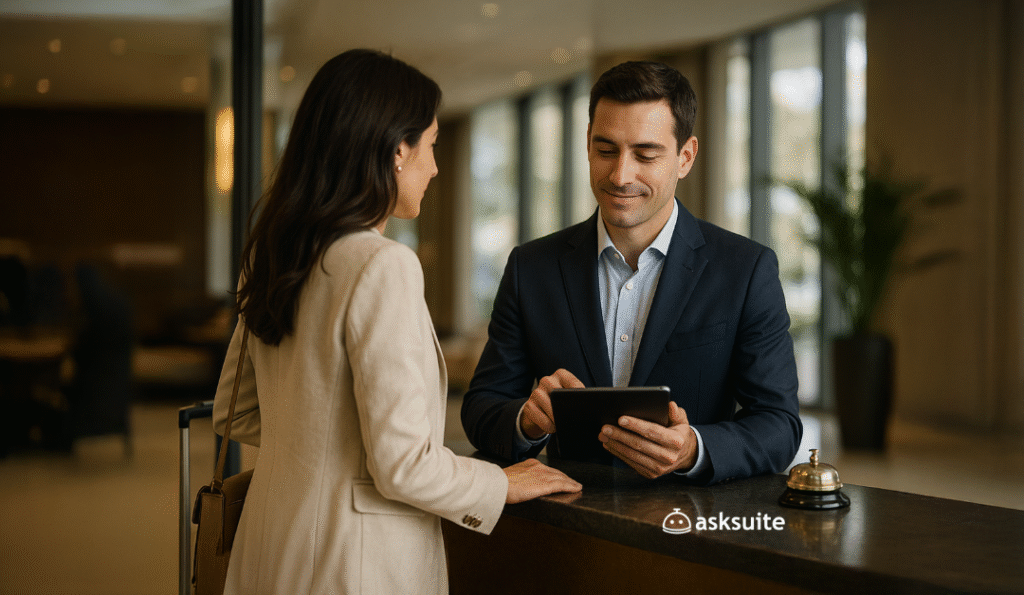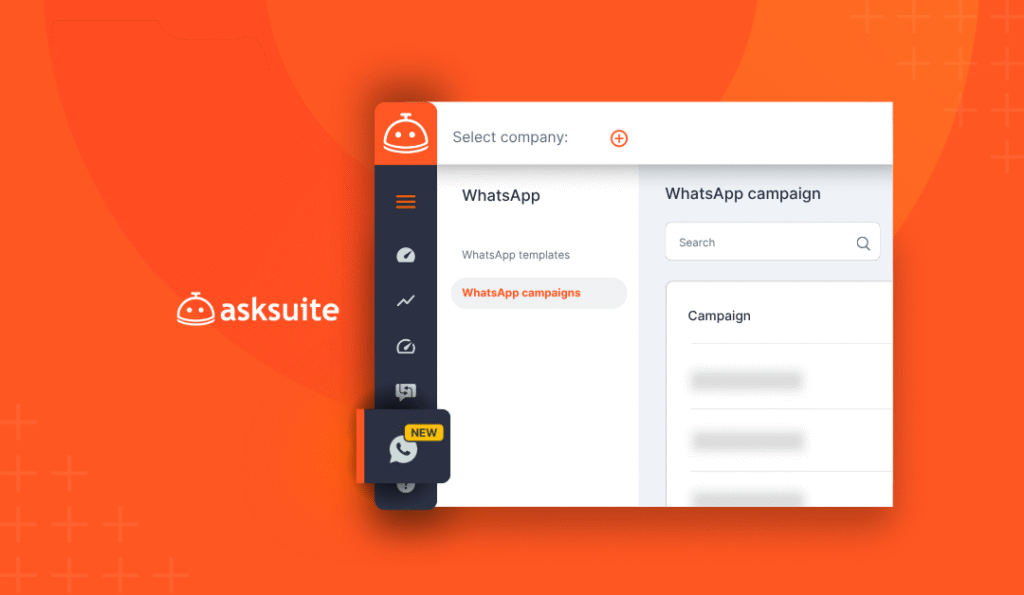In today’s highly competitive hospitality industry, hotel sales play a crucial role in ensuring long-term business success. From guaranteeing direct bookings to building guest loyalty, the goal of hotel sales is to accelerate revenue using smart strategies.
With a rapidly evolving market, driven by technological advancements, hoteliers must continually adapt their hotel revenue strategies to stay ahead.
In this comprehensive guide, we’ll explore what hotel sales truly are, the different types of sales that exist in the hospitality industry, and five relevant hotel sales strategies to help you increase bookings and optimize revenue.
Additionally, we’ll highlight the importance of tech tools for hotel sales and how they can make your team more efficient and data-driven.
Let’s dive in!
What is hotel sales?
At its core, hotel sales refers to the activities that drive revenue for a hotel. This goes beyond simply filling rooms; it’s also about:
- Increasing profits throughout the year;
- Building lasting guest relationships;
- Maximizing upselling and cross-selling;
- Discovering new sales opportunities.
Hotel sales focus on accelerating revenue through well-planned strategies that ensure sustainable business growth. The most important are:
- Direct bookings;
- Business conferences;
- Group bookings;
- Upselling and cross-selling.
For hoteliers, an effective hotel revenue strategy is essential to consistently achieve high guest satisfaction and profitability. Sales department must nurture relationships, anticipate market trends, and leverage tech tools to elevate the hotel’s revenue.
5 strategies to increase hotel sales
To put your sales strategy in action, let’s take a closer look at practical tips. Here are 5 ways to take your hotel’s sales strategy to a whole new level!
1. Optimize direct booking channels
Encouraging direct bookings should be a top priority for any hotel. This strategy is not only more profitable, but it allows hotels to build direct relationships with guests, which is critical for personalized services and loyalty.
One way to optimize direct bookings is through a user-friendly website that employs smart tech like Asksuite’s AI Reservation Agent. It provides a seamless booking process, handles customer FAQs 24/7, and even compares prices to guarantee that potential guests understand the value of booking directly with the hotel.
2. Make interaction management easier
One of the biggest challenges hotels face is managing interactions across multiple channels and this can be a real obstacle to increase sales. Giving a seamless communication experience to guests throughout their entire journey maximizes their chances to engage with your hotel, finalize bookings and enjoy extra services.
An omnichannel platform centralizes all these interactions into one system, making sure no communication is missed. It also allows the hotel staff to be consistent at every touchpoint as customers no longer need to repeat their preferences or their requests when switching from one communication channel to another.
This uninterrupted flow enhances the guest experience and increases the likelihood of booking conversion and loyalty.
3. Automate 1:1 guest communication
Automation plays a crucial role in improving the efficiency of hotel sales strategies. Tools like communication and service platforms segment the guest database, personalize message workflows, and send timely communication based on guest info.
The result is a highly customized experience that makes guests feel valued and doesn’t overwhelm your hotel’s team with repetitive tasks, like follow-up or booking confirmation messages.
Did you know? Asksuite’s newest solution is all about automating proactive and personalized message workflows at every stage of the guest’s journey, bringing more efficiency, scalability, and revenue to your hotel. It allows you to create 1:1 message flows during your guests’ entire journey!
4. Focus on upselling and cross-selling opportunities
Training your team to identify upselling and cross-selling opportunities is one of the most effective ways to maximize hotel revenue. To deliver relevant upsell and cross-sell revenue, it’s important to communicate effectively all amenities your hotel offers.
It may sound obvious, but how are guests supposed to buy a spa treatment or a special dinner if they just don’t know these services are available? This is a simple strategy that can bring outstanding results to your property!
Pro tip: AskFlow enhances this communication, helping your team unlock upselling and cross-selling opportunities effortlessly.
5. Rely on data to make sales decisions
In order to maximize revenue and understand the effectiveness of hotel sales strategies, hoteliers need access to real-time data and key performance metrics. Smart dashboards provide an intuitive, user-friendly way to monitor important metrics. By consolidating this info in one place, smart dashboards empower hotel managers and sales teams to make data-driven decisions quickly and efficiently.
A smart dashboard will reveal which channels are most effective in conversions, who are the most well-performing human agents, and how the AI Reservation Agent is doing in sales.
By using this data, hoteliers can continuously optimize their sales approach, ensuring that they are not only meeting but exceeding their revenue goals.
The importance of tech tools in hotel sales
As we’ve covered relevant sales strategies, it’s clear how technology has become a critical driver of hotel sales both to your sales team and guests. Tech tools are must-haves when it comes to:
- Providing an outstanding guest experience;
- Streamlining daily routines and processes;
- Leveraging sales performance and boosting revenue.
Taking advantage of hospitality-driven tech tools like Asksuite sets your hotel apart in a competitive market. Keep in mind that combining human expertise with automation tools lead to faster and more efficient operations with exceptional results.
Asksuite offers solutions that increase direct bookings while enhancing guest communication and exploring new sales opportunities.
To make the most of hospitality tech-tools, reach out to one of Asksuite’s specialists now!
This blog post was originally written on June 8, 2022 by Evelin Lima and updated on October 25, 2024 by Asksuite’s team.
